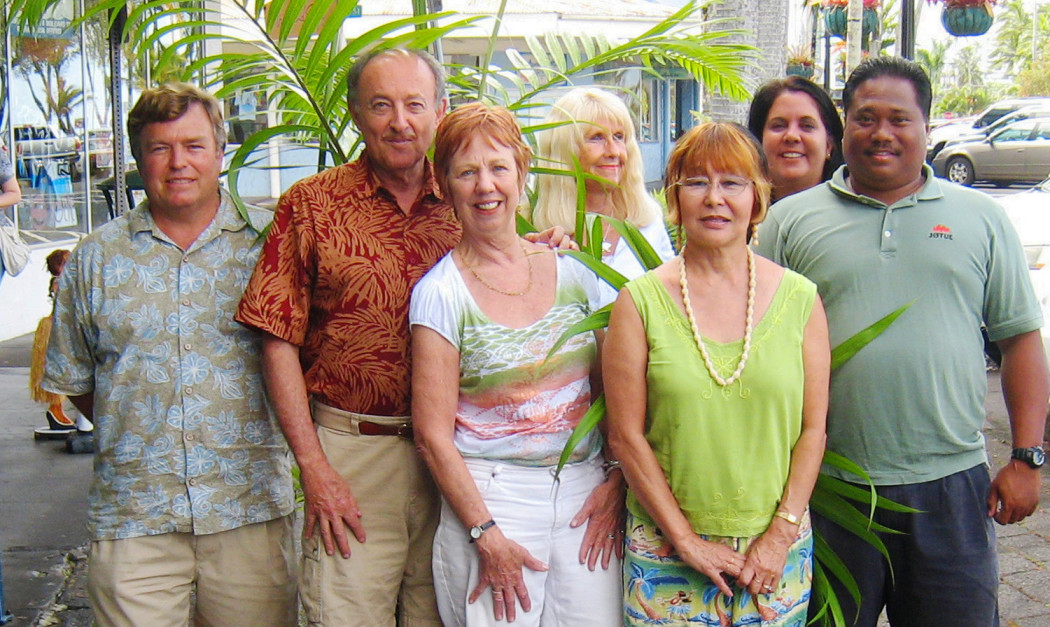Managing with Aloha: ‘Imi Ola
 ‘Imi ola: To seek best life. Our purpose in life is to seek its highest form. The value of mission and vision. Fourth in an ongoing series.
‘Imi ola: To seek best life. Our purpose in life is to seek its highest form. The value of mission and vision. Fourth in an ongoing series.
By Rosa Say
To ‘Imi ola is to seek life. When we practice ‘Imi ola as personal value, we create and fulfill our own destiny. We learn that our very purpose in life is to seek the highest form of our well-being. This is not selfish, it’s expressive: to ‘Imi ola is to define and celebrate your gifts as you breathe best working form into your actions, growing into the person you’re meant to be—the person you can most generously share with others through your Aloha Spirit. At work, you seize the well-being of ‘Imi ola through livelihood and the form you give every effort.
Practice ‘Imi ola in both noun and verb forms as your work-in-progress. As verb, you actively practice it by constantly seeking the best form you can actively apply to each stage of your life. As noun, you make it your visionary goal: You conceptualize and design ‘Imi ola as the person you want to become, the project you want to complete, and the mission you want to materialize. On a day-to-day basis, it is very useful to think of ‘Imi ola as a measure of your currently functional reputation. There’s nothing passive about it. We can’t select our reputations; we have to earn them.

If you’re a manager, you ‘Imi ola by answering your calling within that profession: form begs function, and the highest form for a life within management can best be thought of as your management style. You create it, you do it, and others recognize it and attribute it to you. If you ‘Imi ola, you design it intentionally rather than falling into it by chance or errant habit, so your management style reflects your calling as an Alaka‘i Manager and your constant learning about your profession. You will then mentor ‘Imi ola for your staff, so they may answer their calling: what is their intention within worthwhile work, expressed for their livelihood? This mentoring of ‘Imi ola in others is the extraordinary privilege of being a manager, and its reward: Alaka‘i Managers count their successes and blessings by counting the people they have helped become successful in the Ho‘ohana work of their Aloha Spirit.
There are two common business practices that can be positively reinvented as ‘Imi ola tools, and this ‘highest form/ best function’ shift in thinking about them will improve their current usage dramatically. They are the writing of individual mission statements and the performance coaching of annual appraisals. The mere mention of both practices get most people to roll their eyes and groan because they’re rarely done well. To manage with Aloha, we must ‘Imi ola them.
An individual mission statement is Ho‘ohana in writing—it’s the visionary work of livelihood aligned with personal purpose via the pathway of company mission. Managers can learn so much about their staff in coaching them to author their professional mission statements. It’s a conversational opportunity we seldom take advantage of, where partnerships open up and engagement syncs for the better. As every great coach will tell you, the players they help perform best are those they know best and can stretch in reach. Knowing their ‘Imi ola, they can bridge present work with future possibility, engineering the most sensible and motivating connections between the two.
Keep the writing of mission statements as simple a process as possible. Missions evolve, and by their very nature they beg to be revised and edited often. You cannot allow a lengthy writing process to sabotage the primary objective here—theirs. No forms or templates. There is immense power in the written word when penned by its own author and read often as something they give form to. Your goal is to tap into that power and let it work its magic. With most missions, a sentence or two is all you need. Get people to talk about the future they imagine. Ask them to describe it in a way that applies to that sweet spot where work, livelihood, and well-being will intersect.
Once you’ve done this, performance coaching and the annual appraisal focus both objectively and subjectively on ‘Imi ola as an individual’s most meaningful work-in-progress. Annual appraisals become the time to assess if their last year was truly one in which they purposefully worked with their professional goals in mind or not. If not, the discussion will revolve around the question why, and it may happen that from that point forward, the time you best spend together is writing a new mission statement—even if it will point the way toward change, or a different job for them elsewhere.
Best of all? ‘Imi ola’s energy won’t wait for that annual appraisal and neither will you: Performance coaching will be the gift you give others in well-being, looking for every chance you have in giving it. ❖
Next issue: Ho‘omau, the value of perseverance and persistence.
Contact writer Rosa Say: RosaSay.com, ManagingWithAloha.com


